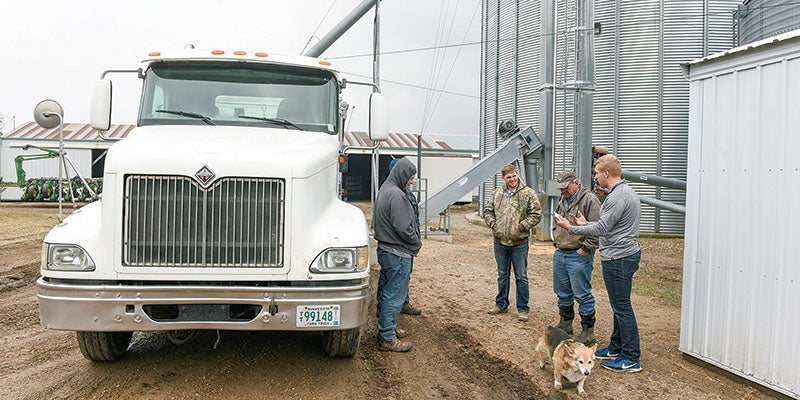Jan. 6 takeaways: Extremists and ‘screaming’ in Trump meet
Published 5:28 pm Tuesday, July 12, 2022
|
Getting your Trinity Audio player ready...
|
WASHINGTON — House investigators are laying out the origins of the violence at the U.S. Capitol on Jan. 6, 2021, using video testimony and live witnesses to describe former President Donald Trump’s “call to action” in a December tweet and how White House advisers urged the president to drop his false claims of election fraud.
At its seventh public hearing, the Jan. 6 panel is not only detailing the plans of extremist groups like the Proud Boys and Oath Keepers ahead of the attack, but is keeping its focus on what was happening inside the White House at the time.
‘A Call to action … a call to arms’
A major focus of the hearing is Trump’s Dec. 19 tweet about a “big protest” at the coming joint session of Congress: “Be there, will be wild!”
Florida Rep. Stephanie Murphy said the tweet “served as a call to action and in some cases as a call to arms.” She said the president “called for backup” as he said Vice President Mike Pence and other Republicans didn’t have enough courage to try to block President Joe Biden’s win at the Jan. 6 joint session.
The tweet “electrified and galvanized” Trump’s supporters, said Maryland Rep. Jamie Raskin, especially “the dangerous extremists in the Oath Keepers, the Proud Boys and other racist and white nationalist groups spoiling for a fight.”
Raskin said Trump emboldened the groups around a common goal. “Never before in American history had a president called for a crowd to come contest the counting of electoral votes by Congress,” he said.
An ‘unhinged’ meeting
The committee spliced together video clips from interviews to describe a meeting from Dec. 18, in the hours before Trump’s tweet, in almost minute-to-minute fashion.
Former White House aide Cassidy Hutchinson, who testified live before the panel two weeks ago, called the meeting between White House aides and informal advisers pushing the fraud claims “unhinged” in a text that evening to another Trump aide. Other aides described “screaming” as the advisers floated wild theories of election fraud with no evidence to back them up, and as White House lawyers aggressively pushed back.
The video clips included testimony from lawyer Sidney Powell, who had pushed some of the wildest theories, including of breached voting machines and hacked thermostats that she somehow tied to the false claims of fraud.
White House lawyer Eric Herschmann, one of the aides who pushed back, said the theories were “nuts” and “it got to the point where the screaming was completely, completely out there.”
The aides described a chaotic six hours of back and forth, starting with Trump talking to a group of the informal advisers with no White House aides present. Both Cipollone and Powell said in interviews that Cipollone, the White House counsel, rushed in to disrupt the gathering. Powell said sarcastically that she thought Cipollone set a new “ground speed record” getting there.
Cipollone, who sat with the committee for a private interview last week after a subpoena, said he didn’t think the group was giving Trump good advice and said he and the other White House lawyers just kept asking them, “where is the evidence?” But they did not receive any good answers, he said.
Hours later, at 1:42 a.m., Trump sent the tweet urging supporters to come to Washington on Jan. 6.
Advice not followed
As they have done several times before, the committee showed video testimony from White House aides who said they did not believe there was widespread fraud in the election and had told the president that. Many said they were firmly convinced Biden’s victory was a done deal after the states certified the electors on Dec. 14 and after dozens of Trump’s campaign lawsuits failed in court.
Ivanka Trump, the former president’s daughter, said it was her sentiment that the election was over after Dec. 14 and “probably prior as well.” Former White House Press Secretary Kayleigh McEnany said she planned for life after the White House at that point. Eugene Scalia, the Labor Secretary at the time, said he told the president in a call that it was time to say that Biden had won.
Former Trump press aide Judd Deere said he told Trump “my personal viewpoint was that the electoral college had met” and the time to pursue litigation had closed.
“He disagreed,” Deere said.
A shift in strategy
The panel is holding the hearings in an effort to establish the truth about the events of Jan. 6, and the weeks beforehand, as Trump and some of his GOP allies try to downplay it or deny it altogether. Wyoming Rep. Liz Cheney, one of two Republicans on the panel, said at the beginning of the hearing that the committee had observed “a change in how witnesses and lawyers in the Trump orbit approach this committee and their strategy” over the past few weeks.
Instead of denying involvement, Cheney said, witnesses and those in Trump’s orbit have increasingly tried to “blame people his advisers called ‘the crazies.”
“President Donald Trump is a 76-year-old man. He is not an impressionable child,” Cheney said. “And just like everyone else in our country, he is responsible for his own actions and his own choices.”
She also spoke to people who still believe his false claims of fraud.
“These Americans did not have access to the truth, like Donald Trump did,” Cheney said, and they wanted to believe him. “For millions of Americans, that may be painful to accept. But it is true.”
Trump has railed against the committee and denied much of its evidence on his social media platform, Truth Social.





